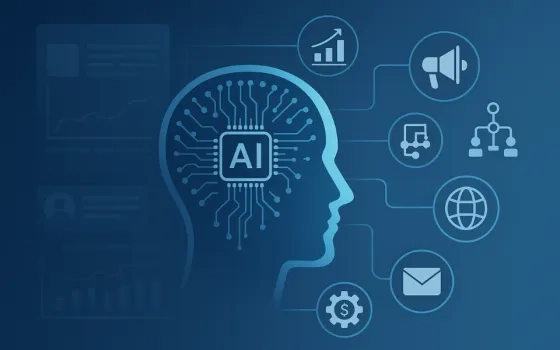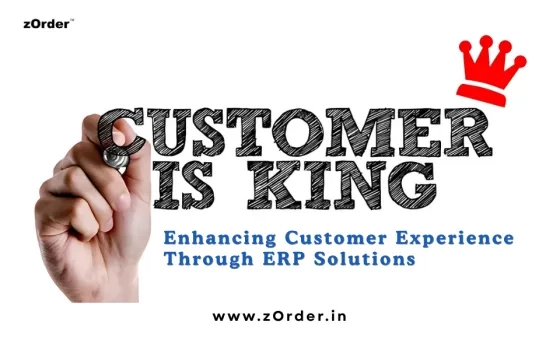Artificial Intelligence (AI) is no longer just a buzzword; it has become a critical driving force behind the evolution of business processes across industries. Among the many areas being revolutionized by AI, lead management stands out as a key beneficiary. As businesses seek to improve their efficiency, productivity, and sales performance, AI-driven lead management tools are reshaping how organizations handle leads, nurture prospects, and close deals.
In this blog, we will explore how AI is transforming lead management platform, the benefits it offers, and why businesses should embrace AI-powered solutions to stay competitive.
What is AI-Powered Lead Management?
AI-powered lead management refers to the use of artificial intelligence technologies, such as machine learning, natural language processing (NLP), and predictive analytics, to automate and optimize the lead management process. These technologies enable lead management tools to analyze vast amounts of data, recognize patterns, and make informed decisions to improve lead tracking, nurturing, and conversion.
Unlike traditional lead management systems that rely on manual inputs and predefined rules, AI-driven tools continuously learn and adapt based on user behavior and data analysis. This results in more intelligent and dynamic lead management, allowing businesses to engage with leads more effectively and at the right time.
How AI is Transforming Lead Management Tools
AI is transforming lead management tools in several key areas, each contributing to a more streamlined, data-driven approach to managing leads. Here’s how AI is making a difference:
Automated Lead Scoring and Prioritization
One of the most time-consuming tasks for sales teams is determining which leads to focus on. Traditional methods of lead scoring often involve manual evaluation based on certain criteria, such as the lead’s engagement level or demographic information. However, this approach can be inefficient and prone to errors.
AI solves this problem by automating lead scoring based on a wide range of data points, such as the lead’s interaction history, website behavior, email engagement, and demographic information. AI analyzes this data in real-time and assigns scores to leads based on their likelihood to convert. This allows sales teams to prioritize high-value leads, ensuring that their efforts are focused on the most promising opportunities.
Example: AI-powered tools can analyze the engagement of a lead across different touchpoints, such as opening an email, clicking a product link, or attending a webinar, and automatically assign a higher score to leads who show strong buying intent.
Predictive Analytics for Sales Forecasting
AI-driven lead management tools are equipped with predictive analytics capabilities that help businesses forecast sales and revenue more accurately. By analyzing historical data and current lead behavior, AI can predict future outcomes such as the likelihood of a lead converting, the time it may take to close a deal, and the expected revenue from a particular lead.
Predictive analytics enable businesses to make data-driven decisions, adjust their sales strategies, and allocate resources more effectively. Sales teams can also use these insights to tailor their messaging and outreach based on the predicted outcomes, improving the chances of conversion.
Example: AI can predict that a lead who has downloaded multiple product brochures and engaged with specific content is more likely to convert within the next two weeks, allowing sales teams to focus on closing that deal.
Personalized Lead Nurturing with AI
Personalization is critical to lead nurturing, and AI makes it easier than ever to deliver highly personalized experiences at scale. AI-driven lead management tools can analyze a lead’s preferences, behaviors, and interactions to create tailored communication strategies. By automating this process, businesses can engage leads with the right message at the right time, leading to higher conversion rates.
For example, if a lead has shown interest in a particular product, AI can automatically send personalized follow-up emails containing relevant product information, case studies, or special offers. This level of personalization helps businesses build stronger relationships with their prospects and move them closer to a purchase decision.
Example: A lead who visited a website’s pricing page may receive an automated email with detailed pricing information and testimonials from satisfied customers, increasing the chances of converting that lead into a sale.
Smart Automation for Lead Nurturing Workflows
AI-powered lead management tools offer smart automation features that go beyond simple task reminders or follow-up emails. These tools can create sophisticated workflows that automatically move leads through the sales funnel based on their behavior and engagement.
AI can monitor interactions, such as opening emails, visiting certain pages, or clicking on ads, and trigger the next step in the lead nurturing process. This could involve sending an additional resource, scheduling a call with a sales representative, or offering a special promotion to drive conversion.
Example: If a lead has consistently engaged with educational content but hasn’t yet made a purchase decision, the AI system might suggest sending an invite to an exclusive webinar on product benefits, keeping the lead engaged and informed.
Chatbots and AI-Driven Customer Interactions
AI-powered chatbots are becoming an integral part of lead management tools, allowing businesses to engage with leads instantly. These chatbots can qualify leads, answer common questions, and provide personalized recommendations based on the lead’s input. By handling initial interactions, AI-driven chatbots free up sales teams to focus on more complex tasks and higher-priority leads.
Chatbots can also collect valuable data on leads’ preferences and behaviors, feeding this information into the lead management system for future personalization and nurturing. This real-time engagement helps businesses respond to leads faster, improving customer satisfaction and conversion rates.
Example: An AI-driven chatbot on a website can ask visitors about their needs and recommend specific products or services, while also capturing the visitor’s contact information for follow-up.
AI-Driven Reporting and Insights
AI enhances reporting by providing deep insights into lead behavior, sales performance, and campaign effectiveness. AI-powered lead management tools can analyze complex data sets and present actionable insights that help businesses optimize their strategies.
Sales teams can use AI-generated reports to understand which marketing channels are driving the most leads, which types of leads are converting the most, and where there may be bottlenecks in the sales funnel. These insights allow businesses to continuously refine their lead management processes and achieve better results.
Example: An AI-powered report might reveal that leads from a particular industry are converting at a much higher rate, prompting the business to target similar leads with specific marketing efforts.
The Benefits of AI in Lead Management
By integrating AI into lead management tools, businesses can enjoy numerous benefits, including:
- Increased efficiency: AI automates repetitive tasks such as lead scoring, follow-ups, and reporting, freeing up valuable time for sales teams to focus on closing deals.
- Improved accuracy: AI-driven tools use data to make precise predictions and decisions, reducing the risk of human error and improving the overall effectiveness of lead management.
- Enhanced personalization: AI enables businesses to deliver personalized experiences at scale, helping to build stronger relationships with leads and increase conversion rates.
- Faster response times: With AI-powered chatbots and automated workflows, businesses can respond to leads instantly, reducing the chances of losing opportunities.
- Data-driven decision making: AI provides actionable insights that help businesses refine their strategies, optimize lead nurturing, and improve sales performance.
Conclusion
AI is transforming lead management tools, bringing unparalleled efficiency, accuracy, and personalization to the sales process. As businesses in India and beyond face increasing competition, adopting AI-driven lead management tools is no longer a luxury — it’s a necessity. By leveraging AI technologies such as predictive analytics, automation, and chatbots, businesses can stay ahead of the curve, engage leads more effectively, and close deals faster.
Source URL: https://medium.com/@prachipathak790/how-ai-is-transforming-lead-management-tools-239be964289b
















